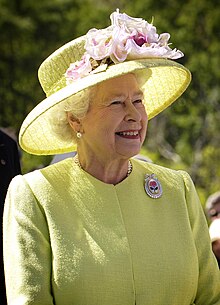Gerontology
Gerontology (from Greek: γέρων, geron, "old man" and -λογία, -logy, "study of") is the study of the social, psychological and biological aspects of aging created by Ilya Mechnikov. It is distinguished from geriatrics, which is the branch of medicine that studies the disease of the elderly.

Gerontology includes these and other endeavors:
- investigating the aging process itself (biogerontology);
- investigating the interface of normal aging and age-related disease (geroscience);
- investigating the effects of our aging population on society, including the fiscal effects of pensions, entitlements, life and health insurance, and retirement planning;
- applying this knowledge to policies and programs, i.e. government planning or running a nursing home.
Biogerontology[change | change source]
Biogerontology is the subfield of gerontology dedicated to studying the biological processes of aging. It includes Biomedical gerontology, also known as experimental gerontology and life extension, is a sub discipline of biogerontology that endeavors to slow, prevent, and even reverse aging in both humans and animals. Curing age-related diseases is one approach, and slowing down the underlying processes of aging with the help of physical exercises is another. Most "life extensionists" believe the human life span can be altered within the 21st century.
Social gerontology[change | change source]
Social gerontology is a multi-disciplinary sub-field that specializes in studying or working with older adults. Social gerontologists may have degrees or training in social work, nursing, psychology, sociology, demography, gerontology, or other social science disciplines. Social gerontologists are responsible for educating, researching, and advancing the broader causes of older people by giving informative presentations, publishing books and articles that pertain to the aging population, producing relevant films and television programs, and producing new graduates of these various disciplines in college and university settings.
Some academic resources[change | change source]
- Ageing & Society, eISSN: 1710-1107 ISSN 0714-9808, Cambridge University Press
- Archives of Gerontology and Geriatrics, ISSN: 0167-4943, Elsevier
- Educational Gerontology, eISSN: 1521-0472 ISSN 0360-1277, Routledge
- Experimental Gerontology, ISSN: 0531-5565, Elsevier
- Geriatrics & Gerontology International, eISSN: 1447-0594[permanent dead link] ISSN 1444-1586, Japan Geriatrics Society
- Gerontology, eISSN: 1423-0003 ISSN 0304-324X, Karger
- Gerontology & Geriatrics Education, eISSN: 1545-3847 ISSN 0270-1960, Routledge
- Journal of Aging Studies, ISSN: 0890-4065, Elsevier
- International Journal of Gerontology, ISSN: 1873-9598, Elsevier
- Journal of Applied Gerontology, eISSN: 1552-4523 Archived 2010-05-14 at the Wayback Machine ISSN 0733-4648, SAGE Publications
